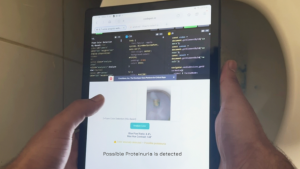
Researchers at the Nanyang Technological University (NTU) and the University of California (UC) have made significant headway with their investigation into remote-controlled insects. The scientists are of the opinion that their cyborg beetle, named Mecynorrhina torquata, could be a more efficient alternative to drone technology, particularly for search and rescue or surveillance purposes.
After several testing phases, the scientists are now able to control the flight and movement of a giant flower beetle via a tiny electronic backpack, which is attached to the beetle’s back with an organic beeswax solution. The backpack is comprised of a small battery and a microprocessing chip, which connects to six thin electrodes carefully implanted into the beetle’s optic lobes and flight muscles.
The control unit weighs approximately 1.3 grams but the giant flower beetle can carry up to 3 grams.
With this system, scientists are able to transmit tiny impulses through wireless signals, which manipulate the beetle’s take off, direction-changing, landing, and hovering capabilities. In addition to these functions, scientists are also able to adjust the beetle’s walking gait, step length, and speed.
The scientists believe that cyborg insects are superior to man-made mechanical drones, which require the manufacturing and assemblage of miniature electronic components. In their research paper, they say that insects are “Nature’s ready-made robot platforms."
The study points out that after the electrodes and microchips were removed, the beetles used in testing resumed autonomous functioning and went on to live their usual lifespan.





